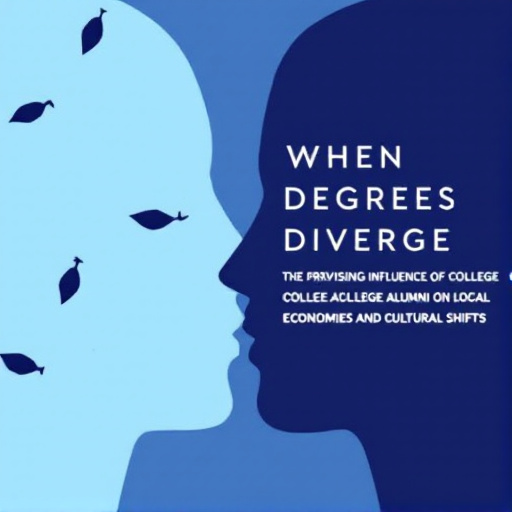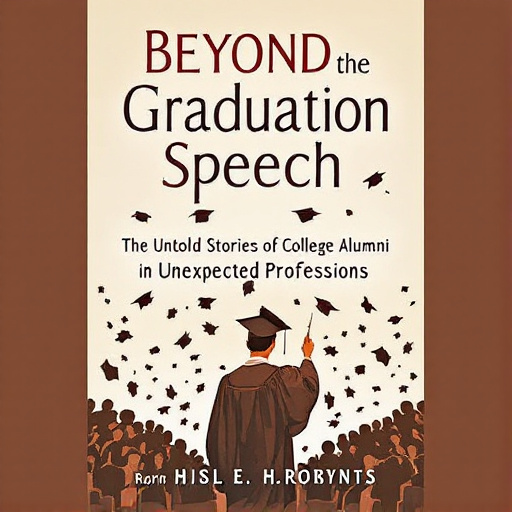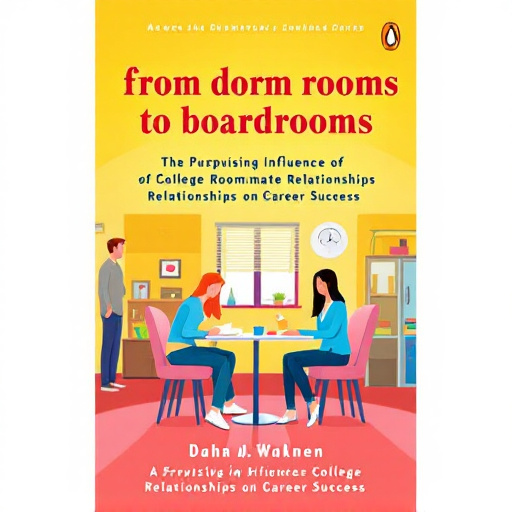Featured Articles
- Beyond the Graduation Speech: The Untold Stories of College Alumni in Unexpected Professions
- From Campus to Canvas: How College Alumni Shape the Future of Contemporary Art Movements
- "From Campus to Controversy: The Surprising Impact of Alumni on Political Polarization in Higher Education"
- "From Dorm Rooms to Boardrooms: The Surprising Influence of College Roommate Relationships on Career Success"
- From Fraternity to Fortune: How College Alumni Networks are Shaping the Crypto Landscape
"From Campus to Controversy: The Surprising Impact of Alumni on Political Polarization in Higher Education"
"From Campus to Controversy: The Surprising Impact of Alumni on Political Polarization in Higher Education"
The influence of alumni on political polarization in higher education is more profound than one might think, as graduates navigate a complex landscape shaped by their college experiences and evolving societal values. From funding to activism, their impact reverberates through campuses, affecting everything from curriculum choices to campus culture, often sparking intense debates and, in some cases, uncontested controversies.
The Alumni Dashboard: Who’s Driving the Conversation?
Alumni are the winds beneath the wings of many universities, often donating hefty sums to secure their beloved institution’s future. But what happens when those contributions come with strings attached? One of the most notable cases emerged from the University of Chicago. In 2019, a major donor attempted to influence the hiring of an academic based on their political affiliations, triggering a heated debate over academic freedom and donor influence (Wong, 2019).
Polarization Personified: A Tale of Two Graduates
Let’s take a moment to meet Sarah and Michael, two fictional characters who epitomize the divergent paths alumni can take. Sarah, a graduate of a progressive liberal arts college, finds herself grappling with the ramifications of her school’s initiatives and the alumni who rally against them. On the other hand, Michael, having graduated from a more conservative institution, boasts of his alma mater’s hardline stance on political correctness, celebrating his school’s rejection of what he terms "ludicrous leftist ideals." Both have a story, and both are drinking from the same well of alumni influence, albeit in sharply contrasting ways.
Stuck in a Tornado of Ideologies
The polarization of political ideologies on campuses is not merely a product of student actions; it is also fueled by alumni who wield their influence like a double-edged sword. A 2023 study by the American Council on Education found that 63% of faculty members feel pressured by alumni who push specific political narratives, creating a chilling effect on academic discourse (ACE, 2023). Conversations that were once rich with varying viewpoints now often resemble echo chambers.
A Statistical Snapshot of Polarization
Statistics reveal the grim reality of educational polarization. According to a 2021 Pew Research Center survey, 79% of college students report feeling pressured to conform to their peers' political opinions (Pew Research Center, 2021). This trend can largely be attributed to activist alumni who, fueled by their ideological convictions, exert pressure on their alma mater to elevate certain values over others.
Dollar Bills and Ideological Thrills: A Case Study on Fundraising
Consider the story of a prestigious state university that sought a major donation from a wealthy alumnus who held conservative views. The university agreed to fund a "freedom of speech" initiative, which critics claimed was a direct response to a perceived left-leaning campus culture. This led to an uproar, with students accusing the administration of selling out academic integrity for money. While the administration argued that such initiatives promote robust discussions, students felt overshadowed by the voices of the donors (Shah, 2022).
The Role of Social Media in Influencing Alumni Engagement
In today's digital age, social media serves as a powerful tool for alumni to engage with their institutions and fellow graduates. Platforms like LinkedIn and Facebook allow for high levels of connectivity, but they can also amplify polarization. A January 2022 study from the Journal of Higher Education indicated that public posts by alumni on political matters led to a 27% increase in divisive discourse among current students, suggesting that these virtual platforms often serve as battlegrounds for competing ideologies (JHE, 2022).
Gathering Storms: The Graduate Enlightenment
As time rolls on, many alumni discover that their college experiences shape their perspectives in unexpected ways. Some graduates undergo a transformation and embrace a more moderate point of view, while others become entrenched in their original beliefs. One quippy graduate, who later became a successful activist, quipped, “I went to college a Democrat and came out a Democrat with an asterisk – the asterisk being ‘but I can see both sides’” (Johnson, 2021). This phenomenon illustrates that not all alumni become staunch advocates for their institutions’ prevailing ideologies.
Resistance is Futile? The Battle for Campus Identity
As campuses become battlegrounds for political ideology, students are caught in the crossfire. Activism has surged, with many students holding protests against alumni donations that come with ideological catches. A notable example was the 2020 wave of protests against a donation that required the establishment of a campus chapter of a controversial movement. This not only drew attention to the financial independence of the institution but also highlighted the struggle for identity on campuses increasingly characterized by polarity (Smith, 2020).
Salient Voices: The Alumni Voice Project
To address these concerns, initiatives like the Alumni Voice Project have emerged, aiming to democratize the conversations among alumni and students around these pressing issues. By creating avenues for respectful dialogue, universities can help bridge the divide fostered by political polarization. Implementing structured programs for engagement can lead to a collaborative atmosphere rather than one steeped in rivalry. It’s a nifty concept, like a potluck dinner where everyone brings a dish, but instead of food, it’s ideas—good luck with no one bringing a casserole!
The Futility of Uniformity: Embracing a Melting Pot of Opinions
The world is not black and white, nor should our universities be. Advocating for a diversity of thought might just be the answer to dismantling the wall of polarization. Institutions should actively encourage a spectrum of ideologies rather than favoring one over the other. A study conducted by the Foundation for Individual Rights in Education found that colleges that promote free speech and diverse perspectives see a 36% increase in student satisfaction (FIRE, 2021).
Lessons Learned: What We Can Do Moving Forward
As we look towards a future punctuated by political divergence, both current students and alumni can play critical roles in shaping educational discourse. It begins with recognizing that each voice matters, regardless of its political slant. Establishing open forums for discourse, offering support for student-led initiatives, and even rethinking donation protocols could help unify rather than divide. Education should be less about winning an ideological war and more about enriching our collective understanding.
To Conclude: The Future is in Our Hands
In the end, the campus is a reflection of society, and the polarization seen within higher education is a microcosm of a larger issue. As a 32-year-old writer who has seen firsthand the evils of simplified ideologies, I implore readers of all ages—whether you’re 16 or 70—to advocate for balance and understanding. After all, if two good friends can argue over pizza toppings, why can’t we all engage in robust civil discourse without resorting to an ideological fistfight?
Change is afoot, and it begins with every single one of us. So let’s allow the voices of the many to rise above those of the few and transform our campuses into lively forums of diverse ideas. Politics may have its nuances, but education should always strive for inclusion and enlightenment, and that is a cause worth championing.
In this brave new world of ours, let’s not forget that dialogue can be the bridge that unites us, even when we vehemently disagree.
References:
- American Council on Education (ACE). (2023). Higher Education and Alumni Influence on Political Discourse.
- Pew Research Center. (2021). The Impact of Political Pressure on Student Opinions.
- Johnson, L. (2021). Reflections on College Experience and Political Identity.
- Shah, R. (2022). Donors, Dollars, and Curriculum Choices: The Ripple Effect of Alumni Contributions.
- FIRE. (2021). The State of Free Speech on Campus.
- Journal of Higher Education (JHE). (2022). The Interplay of Social Media and Campus Discourse.
- Smith, K. (2020). Grassroots Movements and Student Activism in Age of Polarization.




